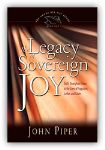The little letter of Jude teaches us something about the value of learning history. This is not the main point of the letter. But it is striking. In this next-to-last book of the Bible, Jude writes to encourage the saints to "contend earnestly for the faith which was once for all handed down to the saints" (verse 3).
The letter is a call to vigilance in view of "certain persons [who] have crept in unnoticed . . . ungodly persons who turn the grace of our God into licentiousness and deny our only Master and Lord, Jesus Christ" (verse 4). Jude describes these folks in vivid terms. They "revile the things which they do not understand" (verse 10). They "are grumblers, finding fault, following after their own lusts; they speak arrogantly, flattering people for the sake of gaining an advantage" (verse 16). They "cause divisions, [and are] worldly-minded, devoid of the Spirit" (verse 19).
This is a devastating assessment of people who are not outside the church but have "crept in unnoticed." Jude wants them be spotted for who they really are, so that the church is not deceived and ruined by their false teaching and immoral behavior.
One of his strategies is to compare them to other persons and events in history. For example, he says that "Sodom and Gomorrah . . . since they, in the same way as these, indulged in gross immorality and went after strange flesh, are exhibited as an example in undergoing the punishment of eternal fire" (verse 7). So Jude compares these people to Sodom and Gomorrah. His point in doing this is to say that Sodom and Gomorrah are "an example" of what will happen when people live like these intruders are living. So, in Jude's mind, knowing the history of Sodom and Gomorrah is very useful in helping detect such error and deflect it from the saints.
Similarly in verse 11, Jude piles up three other references to historical events as comparisons with what is happening in his day among Christians. He says "Woe to them! For they have gone the way of Cain, and for pay they have rushed headlong into the error of Balaam, and perished in the rebellion of Korah." This is remarkable. Why refer to three different historical incidents like this that happened thousands of years earlier - Genesis 19 (Sodom), Genesis 3 (Cain), Numbers 22-24 (Balaam), Numbers 16 (Korah)? What's the point?
Here are three points: 1) Jude assumes that the readers know these stories! Is that not amazing! This was the first century! No books in anyone's homes. No Bibles available. No story tapes. Just oral instruction. And he assumed that they would know: What is "the way of Cain" and "the error of Balaam" and "the rebellion of Korah"? Do you know? Isn't this astonishing! He expects them to know. It makes me think that our standards of Bible knowledge in the church today are too low.
2) Jude assumes that knowing this history will illumine the present situation. The Christians will handle the error better today, if they know similar situations from yesterday. In other words, history is valuable for Christian living. To know that Cain was jealous and hated his brother and resented his true spiritual communion with God will alert you to watch for such things even among brothers.
To know that Balaam finally caved in and made the Word of God a means of worldly gain makes you better able to spot that sort of thing. To know that Korah despised legitimate authority and resented Moses' leadership will protect you from factious folk who dislike anyone being seen as their leader.
3) Is it not clear, then, that God ordains that events happen and that they get recorded as history so that we will learn them and become wiser and more insightful about the present for the sake of Christ and his church. Never stop learning history. Gain some knowledge every day. And let us give our children one of the best protections against the folly of the future, namely, a knowledge of the past.
Learning with you, for Christ and his kingdom,
Pastor John
 The Legacy of Sovereign Joy: God's Triumphant Grace in the Lives of Augustine, Luther, and Calvin
The Legacy of Sovereign Joy: God's Triumphant Grace in the Lives of Augustine, Luther, and Calvin
What freed Aurelius Augustine from bondage to sexual immorality? What gave Martin Luther lion-like boldness in defending the supremacy of Scripture? What fueled John Calvin's God-entranced preaching and writing ministry? Find out in this great resource from the Desiring God online store.
John Piper has been the Pastor for Preaching at Bethlehem Baptist Church in Minneapolis, Minnesota, since 1980. He has authored numerous best-selling books, including The Passion of Jesus Christ, Don't Waste Your Life and Desiring God. You will find 25 years of online sermons, articles and other God-centered resources from the ministry of John Piper at www.desiringgod.org. He also has a daily radio program, called "Desiring God," which can be accessed online at www.desiringGod.org/radio.